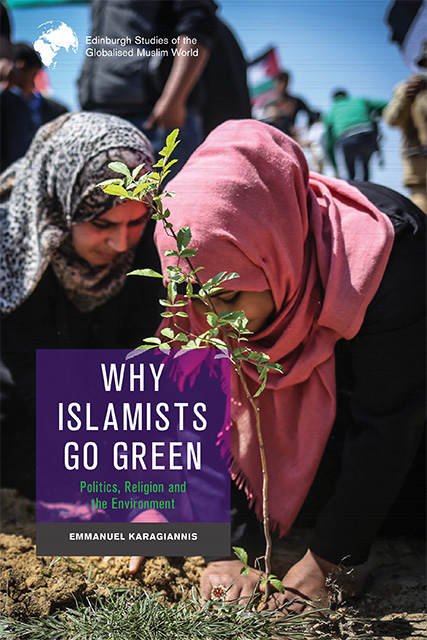Book contents
- Frontmatter
- Contents
- Glossary
- Transliteration
- Series Editor’s Foreword
- Preface and Acknowledgements
- Dedication
- Introduction
- 1 Islam and the Environment
- 2 The Muslim Brotherhood and the Environment
- 3 Hizb ut-Tahrir and the Environment
- 4 Hizbullah and the Environment
- 5 Hamas and the Environment
- 6 The Jihadi-Salafi Movement and the Environment
- 7 Understanding Islamist Environmentalism
- Conclusions
- Appendix
- Select Bibliography
- Index
4 - Hizbullah and the Environment
Published online by Cambridge University Press: 20 October 2023
- Frontmatter
- Contents
- Glossary
- Transliteration
- Series Editor’s Foreword
- Preface and Acknowledgements
- Dedication
- Introduction
- 1 Islam and the Environment
- 2 The Muslim Brotherhood and the Environment
- 3 Hizb ut-Tahrir and the Environment
- 4 Hizbullah and the Environment
- 5 Hamas and the Environment
- 6 The Jihadi-Salafi Movement and the Environment
- 7 Understanding Islamist Environmentalism
- Conclusions
- Appendix
- Select Bibliography
- Index
Summary
For almost four decades, Hizbullah has played an important role in Lebanese political and military affairs. The group mainly represents Twelver Shiʿa Muslims (Ithna ashariyyah), who constitute the second-largest religious group in the country. The very name Hizbullah derives from the Qurʾanic verse 5:56: ‘And whosoever takes Allah and His messenger and those who believe for friend – surely the party of Allah, they shall triumph’. According to Islamic theology, there are two parties: the Party of God (Hizbullah) and the Party of Satan (Hizb ul-Shaytan). Thus, Hizbullah is more than a party because it represents God on earth.
From its founding in the early 1980s, Hizbullah recognised Ayatollah Khomeini as the official marjaʿal-taqlid (highest-ranking religious-legal authority) of the Islamic Republic and the first faqih (Islamic jurist) after the Major Occultation. The 1979 Iranian Revolution had led to the overthrow of the Shah and the return of Khomeini from France. The founder of the Islamic Republic posed as a champion of Islamic revival to appeal to the wider Muslim world. However, his version of Islamism soon became a revo-lutionary force for the defence of Shiʿa rights in the Middle East.
Khomeini claimed the world is divided into two groups: mustakbirin (the oppressors) and mustadʾafin (the oppressed). The terms can be found in the Qurʾan, but Khomeini provided a political interpretation of them. He argued:
It is our duty to be helper to the oppressed and an enemy to the oppressor. This is nothing other than the duty that the Commander of the Faithful (Amir al-Muʾminin, namely Imam Ali) entrusted to his great offspring (that is Hassan and Hussein) in his celebrated testament ‘Be an enemy to the oppressor and a helper to the oppressed’.
Indeed, Khomeini viewed the Shiʿa as the representatives of ‘oppressed peoples’ of all religions.
Revolutionary Iran sought to export its ideology to Lebanon because the country had a large Shiʿi community and because its clerics maintained strong links with their Iranian counterparts. In the early 1980s, Lebanon was in the middle of a bloody civil war and the Shiʿa population largely relied on the Amal militia for protection. Following the disappearance of its founder, Imam Musa al-Sadr, en route to Libya in August 1978, Amal broke up into a pro-Syrian and a pro-Iranian faction.
- Type
- Chapter
- Information
- Why Islamists Go GreenPolitics, Religion and the Environment, pp. 100 - 124Publisher: Edinburgh University PressPrint publication year: 2023



